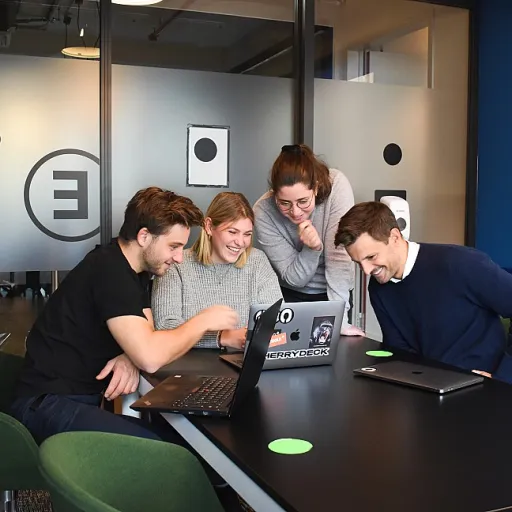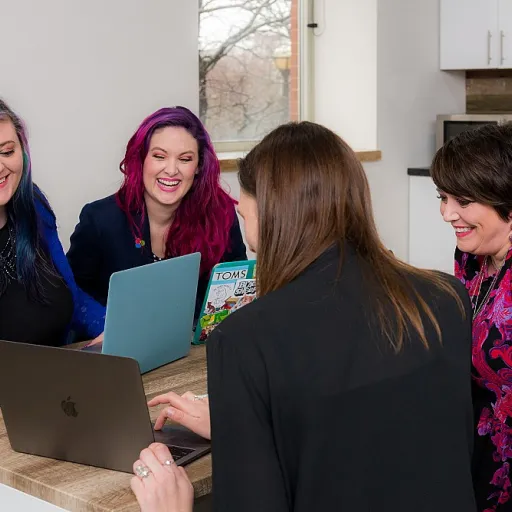
Understanding the unique learning needs in professional mentoring
Recognizing Diversity in Professional Learning Styles
Every professional entering a mentoring relationship brings a unique set of learning needs, shaped by their background, experience, and goals. Understanding these differences is the first step to unlocking effective study methods and boosting academic performance in the workplace. Unlike traditional school settings, professionals often juggle multiple responsibilities, making it crucial to tailor study sessions and techniques to fit their schedules and learning preferences.
Mentors should start by observing how their students approach studying. Some may prefer reading and reviewing materials quietly, while others benefit from interactive methods like mind mapping or the Feynman technique. Recognizing these preferences allows mentors to recommend study methods that align with individual strengths, leading to more effective learning and long-term recall.
- Active recall: Encourages learners to retrieve information from memory, strengthening understanding and retention.
- Spaced repetition: Helps professionals review material over time, supporting long-term memory and academic success.
- Pomodoro technique: Breaks study time into focused intervals, improving focus and productivity during busy workdays.
Creating an effective study space is also essential. A quiet, organized environment supports concentration and helps the mind transition into learning mode. For those with late night study habits, mentors can suggest strategies to maintain energy and focus, such as short breaks or adjusting study techniques to match natural rhythms.
Ultimately, understanding the unique learning needs of each mentee sets the foundation for personalizing study methods and achieving development goals in the workplace. For more on how to set and achieve these goals, explore this resource on examples of development goals in the workplace.
Building trust to foster effective learning
Establishing a Foundation of Mutual Respect
Before diving into advanced study techniques like mind mapping, active recall, or the pomodoro technique, mentors must first create a safe and respectful environment. Trust is the cornerstone of any effective mentoring relationship. When students feel respected and understood, they are more likely to engage in learning, ask questions, and share their challenges. This foundation is essential for effective study sessions and long-term academic success.
Open Communication: The Key to Productive Study Sessions
Clear, honest communication helps mentors understand the unique learning needs and study habits of their mentees. By encouraging open dialogue, mentors can identify which study methods—such as spaced repetition or the Feynman technique—will be most effective. This approach not only improves recall and understanding but also builds confidence in students, making them more receptive to feedback and new study techniques.
- Active listening: Pay close attention to students’ concerns and goals to tailor study methods effectively.
- Consistent check-ins: Regularly review progress and adjust study strategies as needed for optimal learning and academic performance.
- Encouragement: Celebrate small wins, whether it’s mastering a new reading technique or improving focus productivity during late night study sessions.
Building Trust Through Accountability
Trust is reinforced when mentors hold themselves and their mentees accountable. Setting clear expectations for study time, review sessions, and the use of effective study methods helps create a sense of responsibility. This accountability supports students in developing strong study habits, improving memory retention, and ultimately achieving academic success.
For more on the essential qualities that support trust and goal achievement in mentoring, explore the key traits of effective goal setting in professional mentoring.
Personalizing study methods for individual growth
Adapting Study Techniques to Individual Strengths
Every student or professional has a unique way of processing information. In professional mentoring, it’s crucial to recognize that what works for one person may not be effective for another. Tailoring study methods to fit individual learning styles can significantly boost academic performance and long term retention.
- Mind mapping helps visual learners organize complex information, making recall and review more intuitive.
- Active recall and the Feynman technique are powerful for those who learn best by teaching or explaining concepts, reinforcing understanding through repetition and simplification.
- Spaced repetition is ideal for those aiming for long term memory retention, breaking up study sessions to maximize recall.
- Pomodoro technique supports individuals who struggle with focus productivity, dividing study time into manageable intervals with breaks to maintain energy and attention.
Mentors should observe how their mentees respond to different study techniques. For example, some may thrive with late night reading, while others benefit from early morning review sessions. Creating a dedicated study space, adjusting the timing of sessions, and even considering the impact of sleep on learning can all contribute to more effective study outcomes.
Encouraging Ownership of the Learning Process
Personalizing study methods is not just about choosing the right technique. It’s about empowering mentees to take control of their learning journey. Encourage them to experiment with various methods studying, such as combining mind mapping with active recall, or using the Pomodoro technique to structure reading and review. This approach helps students discover what truly works for them, leading to greater academic success and confidence in their ability to learn and teach learn.
For mentors, understanding these nuances is essential. It’s also important to foster qualities like adaptability and collaboration. If you’re interested in how these traits contribute to effective mentoring and teamwork, you can explore more in this article on essential traits of an effective team player.
Ultimately, the secret to effective study lies in recognizing that every mind is different. By personalizing study methods and encouraging mentees to reflect on their progress, mentors can unlock the full potential of each individual, paving the way for sustained academic and professional growth.
Encouraging reflective practice for continuous improvement
Promoting Self-Awareness Through Thoughtful Review
Reflective practice is a cornerstone for professionals aiming to improve their learning and mentoring skills. Encouraging students and mentees to pause and review their study sessions helps them identify what methods work best for their unique minds. This process is not just about recalling facts but about understanding how they learn, which is essential for long-term academic success.
- Active recall: After reading or studying, ask mentees to summarize key points from memory. This technique strengthens memory and highlights areas needing further review.
- Mind mapping: Encourage visual learners to create mind maps after each study session. This method helps organize thoughts and reveals connections between concepts, making recall more effective.
- Feynman technique: Suggest that students teach what they've learned to someone else. Explaining concepts in simple terms uncovers gaps in understanding and deepens learning.
Regular reflection also helps professionals recognize patterns in their study habits. For example, some may find that late night study sessions reduce focus and productivity, while others benefit from short, focused intervals like the Pomodoro technique. By reviewing what works, mentors can guide mentees to adapt their study space, time, and methods for optimal academic performance.
Integrating reflective practice into daily routines doesn't require complex tools. Simple journaling after each session or setting aside a few minutes to review what was learned can make a significant difference. Over time, this habit supports continuous improvement and helps both mentors and students develop effective study techniques tailored to their needs.
Leveraging feedback for accelerated learning
Transforming Feedback into Actionable Insights
Feedback is one of the most powerful tools for accelerating learning and improving academic performance in professional mentoring. When mentors and students engage in open, constructive review sessions, it becomes easier to identify strengths and areas for growth. However, the real value comes from turning feedback into actionable steps that enhance study methods and studying techniques.- Timely feedback helps students adjust their study sessions and focus productivity where it matters most. Immediate insights allow for quick corrections, supporting long term retention and effective study habits.
- Specific feedback is more beneficial than general comments. For example, pointing out how to improve mind mapping or suggesting ways to use the Feynman technique makes the learning process more targeted and effective.
- Encouraging self-review fosters active recall and reflective practice. When students are guided to assess their own understanding, they develop critical thinking skills and a deeper connection to the material.
Integrating the 7 secret methods into daily professional routines
Making Study Techniques a Natural Part of Work Life
Integrating the 7 secret methods for studying into daily professional routines is where theory meets practice. For mentors, the challenge is not just knowing these methods—like mind mapping, active recall, the Feynman technique, spaced repetition, and the Pomodoro technique—but weaving them into the fabric of everyday work and learning.
- Designate a study space: Encourage your students or mentees to create a dedicated area for study sessions. This helps signal to the mind that it’s time to focus, boosting productivity and effective recall.
- Schedule regular review sessions: Use spaced repetition to revisit key concepts over time. This technique supports long term memory and academic performance, making learning stick beyond the short term.
- Promote active reading and recall: Instead of passive reading, guide learners to summarize, question, and teach back what they’ve read. The Feynman technique is especially powerful for deep understanding and retention.
- Integrate reflection into daily routines: After meetings or training, set aside a few minutes for reflective practice. This helps consolidate learning and identify areas for improvement.
- Use the Pomodoro technique for focus: Short, focused bursts of study or work, followed by breaks, can help maintain energy and concentration, especially during late night study or busy workdays.
- Encourage mind mapping for complex topics: Visualizing information helps with understanding and recall, making it easier to connect ideas and see the bigger picture.
- Prioritize sleep and well-being: Remind mentees that sleep is crucial for memory consolidation and academic success. Effective study isn’t just about time spent, but also about rest and recovery.
By embedding these methods into daily habits, mentors help students and professionals not only learn more effectively but also build a sustainable approach to continuous improvement. The goal is to make these studying techniques second nature, supporting both immediate learning needs and long term growth.













